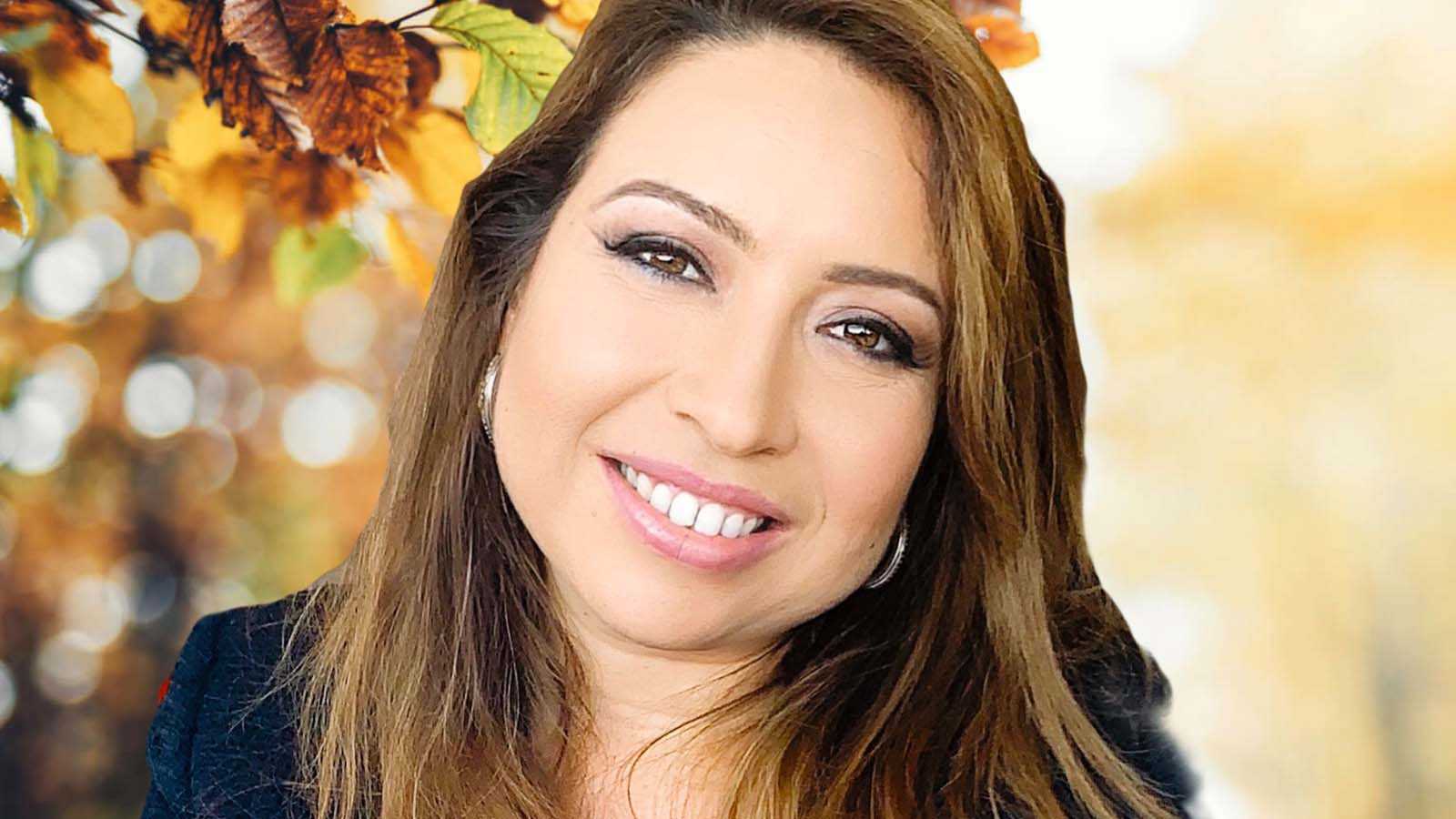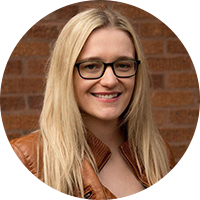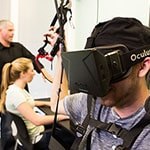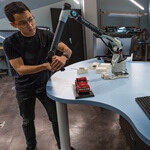Full Sail Stories
Published Sep 30, 2021
Faculty Spotlight: Dr. Haifa Maamar Brings Industry Mastery to Full Sail’s Tech and Game Programs
The Education Director of Emerging Technologies is using her years of research and work experience to make Full Sail a tech and game-degree pioneer.

If you want an industry pro who can teach you about computer networks, virtual reality, video games, and more, look no further than Dr. Haifa Maamar. As Full Sail’s Education Director of Emerging Technologies, Haifa helps the next generation of technology and game professionals develop the skills they need to forge a path in competitive industries. Dr. Maamar's advanced education and professional success make her a valuable leader in Full Sail’s technology and game-related programs.
An Education in Robots, Augmented Reality, and Exergaming
Haifa was always fascinated by technology. She attended a STEM-focused middle school and high school in Tunisia, then earned her Computer Engineering bachelor’s, Electrical Engineering master’s, and PhD in Computer and Electrical Engineering from the University of Ottawa. The projects and research she completed during her education paved the way for her success in the tech industry.
For her bachelor’s degree, Haifa worked on a robot that was similar to a Roomba. The robot was programmed to follow a specific path on the floor, then trace any obstacles it encountered and send that information to a connected PDA (a handheld device used in engineering). The connection between the robot and the PDA created a computer network, which was Haifa’s specialty during her bachelor’s program.
Haifa’s Electrical Engineering studies built on her knowledge of computer networks by focusing on collaborative virtual environments. She helped build a training system for surgeons to perform remote surgeries using the PHANToM haptic interface. The system’s handheld device allowed surgeons to practice incisions and gland removals for tracheostomies and brain surgeries on a virtual patient using a robot. Haifa made sure that the system retained vital information throughout the training sessions.
“Mainly I was working on the transport protocol for the collaborative virtual environment applications. Because when you are controlling the PHANToM and then you're controlling a virtual environment or the hands of the surgeon here, the information can be lost. The way the robot will perform the incisions can be difficult if you don't have the right information in the packets at the right time. That can definitely harm the patient… So [this training system is] making sure that everything is going smoothly, before we perform a real surgery on a real patient,” she explains.
During her PhD, Haifa devoted her time to modeling wireless networks in virtual reality environments and augmented reality environments. For a project with Defense Canada, she worked on training systems and emergency preparedness applications that helped first responders safely approach emergencies and disaster scenarios by using head-mounted devices and sensors to rebuild environments in virtual reality.
“The idea there was, what if we had an event or a disaster scenario — let’s say for example a fire in a building. How can we gather the information about the building and the event? How can we know if there are victims within that building? So, the firefighters and first responders going in are tracking everything and getting an idea of the environment, then sending that information back to the other first responders, so that they can put together a specific plan on how to target the fire in that building and then get the victims out,” she says.
Haifa’s PhD research translated beyond emergency scenarios: The focus on recreating environments in virtual settings can assist players who are trying to strategize their next move in augmented reality games. That came in handy for Haifa’s additional PhD project, where she proposed a new trend of mobile collaborative exergaming applications that encouraged children to exercise.
“The proposed system... encouraged kids to move inside a large area using thin mobile devices such as head-mounted devices. [It motivated them] to exercise and collaborate with other kids, which addressed health problems like the social and physical consequences of the obesity epidemic,” Haifa says.
Creating Stock Exchange Solutions
As soon as Haifa finished her PhD, she started working as a Functional Analyst for the Montreal Stock Exchange. She was a software architect that built software solutions for them, as well as the Toronto Stock Exchange, Boston Stock Exchange, Milan Stock Exchange, London Stock Exchange, and New York Stock Exchange. Whenever they needed a new solution or product, Haifa would meet with the business analysts and clients to understand the request then write the solution for the trading system. “[After I wrote the solution] I’d work with the programmers to make sure it’s implemented correctly, work with quality assurance to make sure it passes all the quality tests, then work with the deployment team to make sure that we deploy it at the right time within the trading system so it's not going to break anything, and it's not going to affect any other existing solutions that are already in place,” she says.
Becoming a Tech & Games Leader at Full Sail
After two years, Dr. Maamar left the stock exchange to teach at Full Sail. She started out teaching courses about mobile gaming and computer networks. She eventually taught in the Game Development bachelor’s program, then became the department chair for Full Sail’s game programs, then a program director. Now she’s Full Sail’s Education Director of Emerging Technologies.
Haifa currently oversees all of Full Sail’s game and technology programs. She’s working to put the school on the map for those programs. Beyond the classroom, part of that effort is creating partnerships with tech companies so that students can work on a company’s professional project as they study technology or games.
“I love working with partners because of the amazing real-world opportunities they bring to our students. It’s a win-win situation, where partners get a prototype or a proof of concept of their project and students get to work on exciting projects and get the chance to experience what it’s like in the industry before they graduate,” she says.
Haifa is also passionate about mentoring, empowering, and promoting women in computer science and emerging technologies. She has contributed to and delivered computer science outreach programs in the community to help women engage with computer science topics.
Haifa is involved in every facet of the degree programs she oversees, and her efforts are all working towards one goal: making Full Sail the go-to school for game and technology education.
“Right now, we are known as the gaming school, but also we need to make sure that people still know that we have very good programs in technology as well… [I’m] making sure that Full Sail is known as a pioneer school in technology.”



